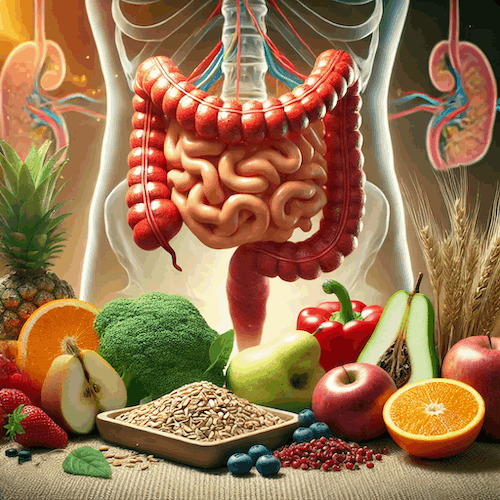When it comes to reducing the risk of diverticulitis, fiber is truly your best friend. This unsung hero of the nutrition world plays a crucial role in maintaining digestive health and preventing the formation of diverticula, those small pouches that can lead to painful inflammation when infected.
Why is fiber so important? First and foremost, it adds bulk to your stool. This might not sound glamorous, but it's essential for smooth digestive function. Bulkier stools are easier to pass, reducing the strain on your colon. This decreased pressure helps prevent the formation of diverticula in the first place.
Moreover, fiber acts like a natural scrub brush for your colon. As it moves through your digestive tract, it helps sweep away waste and potential irritants. This cleansing action can reduce inflammation and lower the risk of infection in existing diverticula.
But not all fiber is created equal. There are two main types: soluble and insoluble. Both are important for preventing diverticulitis:
Soluble fiber dissolves in water, forming a gel-like substance. It helps soften stool and can be found in foods like oats, beans, and apples.
Insoluble fiber doesn't dissolve in water. It adds bulk to stool and helps food pass more quickly through the stomach and intestines. Good sources include whole grains, nuts, and vegetables.
To reap the benefits of fiber in preventing diverticulitis, aim for about 25-30 grams per day. However, if you're not used to a high-fiber diet, increase your intake gradually to avoid digestive discomfort.
Great sources of fiber include:
Whole grains (brown rice, quinoa, whole wheat bread)
Legumes (lentils, chickpeas, black beans)
Fruits (particularly those with edible skins and seeds)
Vegetables (especially leafy greens and cruciferous veggies)
Nuts and seeds
Remember, while increasing your fiber intake, it's crucial to stay well-hydrated. Fiber works best when it can absorb water, making stools softer and easier to pass.
By making fiber your dietary best friend, you're not just reducing your risk of diverticulitis. You're also promoting overall digestive health, potentially lowering cholesterol levels, and even helping to maintain a healthy weight. It's a simple dietary change with powerful health benefits.


